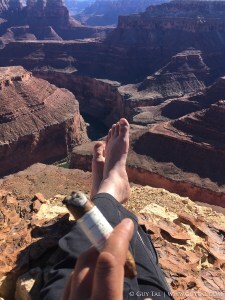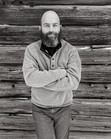Discretionary Time
This article is offered in response to an anonymous reader who wrote to say that they “would love to spend more time philosophizing, but who’s got the time?”
Have a philosophical question you’d like me to write about? Please don’t hesitate to write.
Please note that if you purchase a book from Amazon using one of the links below, I will be paid a small commission. Alternatively, you will find a more comprehensive discussion of these and other philosophical thoughts in my recent book, Be Extraordinary.
Everything is public now, potentially: one’s thoughts, one’s photos, one’s movements, one’s purchases. There is no privacy and apparently little desire for it in a world devoted to non-stop use of social media. Every minute, every second, has to be spent with one’s device clutched in one’s hand. Those trapped in this virtual world are never alone, never able to concentrate and appreciate in their own way, silently. They have given up, to a great extent, the amenities and achievements of civilization: solitude and leisure, the sanction to be oneself, truly absorbed, whether in contemplating a work of art, a scientific theory, a sunset, or the face of one’s beloved.
—Oliver Sacks
Søren Kierkegaard believed that boredom is the root of evil. I agree with him. Boredom seems to me, in the purest sense, as wasted living. It’s no wonder bored people constantly seek ways to alleviate boredom. Some people do so by pursuing lifestyles that Kierkegaard referred to as aesthetic, characterized (among other things) by constant pursuit of easy distractions: ways of relieving boredom that are not too demanding on either the body or the intellect. Other people, whom Kierkegaard refers to as ethical, take their life choices more seriously: they consciously contemplate all the options open to them, weigh these options for their morality, and authenticity, and choose those that are most ethical and life-affirming, regardless of how difficult or risky they may be or how they may be judged by other people.
Kierkegaard also had the wisdom to distinguish boredom from idleness. In his book Either/Or, he wrote, “Idleness, it is usually said, is a root of all evil. To prevent this evil one recommends work. However, it is easy to see from the remedy as well as the feared cause that this whole view is of very plebeian extraction. Idleness as such is by no means a root of evil; quite the contrary, it is a truly divine way of life so long as one is not bored” (italics mine).
This sentiment is echoed also in the writings of many other thinkers. John Lubbock, for example, put it in terms I hope will resonate with readers of this journal, who I expect share my interest in nature and art. He wrote, “Rest is not idleness, and to lie sometimes on the grass under the trees on a summer’s day, listening to the murmur of water, or watching the clouds float across the blue sky, is by no means waste of time.”
Modern psychology and brain science give us deeper insights into the human mind than were available in Kierkegaard’s day. Impressively, in many cases these sciences validate and support some of his intuitions. Relying on science, we can now define more deliberately what boredom is, and why the suggested remedy of “work” may not always… work. In fact, some kinds of work may make boredom worse. Some kinds of work may even induce boredom in a person who may otherwise be perfectly content being physical idle but whose mind is active.
So long as we are alive and not in a coma, our brains are never idle even if our bodies are. Our brains do, however, alternate between two distinct states of attention: the state of paying focused attention to something, and the state of drifting “mindlessly” without conscious focus. In this latter state, which I assume is what Kierkegaard referred to as “idleness,” boredom cannot exist. This is for the simple fact that when we feel bored, our attention doesn’t drift: it is focused consciously on the fact that we feel bored and on seeking ways to relieve boredom. Boredom only happens when our minds are actively seeking something to do, and may be exacerbated when we are engaged in an activity (e.g., work, conversation, social obligation) that is decidedly not interesting to us.
It may seem that boredom arises from things imposed on us by external circumstances—having to perform uninteresting jobs to earn an income, attending uninteresting events to curry favor with or to signal allegiance to other people, partaking in uninteresting conversations, waiting in line, being placed on hold, or stuck in situations where we don’t see opportunities to engage in something interesting. But this is not always the case. Much boredom is rooted in self-imposed habits (addictive ones being the worst)—activities that may be only mildly interesting or rewarding but that don’t challenge us sufficiently to ward off boredom entirely. At times, we may choose to engage in such activities even when we know of better uses for our time if these other uses demand investment of physical of cognitive effort that we are loath to expend, such as reading a book, going for a walk, writing, attending a class, or volunteering to help at an animal shelter.
 While idleness (in the sense of not focusing our attention on anything in particular) may indeed be a better use of time than boredom, it is alas an impossible state to accomplish at will. This is because true idleness engenders the same paradox that enlightenment does in some Eastern traditions, which is this: the very act—even just the intention—of trying to achieve a state of pure idleness (or enlightenment), puts this state beyond reach. (Note that what I refer to by “idleness” here is not the same as the state of detached equanimity—the state of “no mind,” also known as mushin in some Eastern traditions—that some meditators strive for, which is a highly-focused conscious state in which meditators strive to become aware of and to actively detach themselves from their own thoughts and feelings.)
While idleness (in the sense of not focusing our attention on anything in particular) may indeed be a better use of time than boredom, it is alas an impossible state to accomplish at will. This is because true idleness engenders the same paradox that enlightenment does in some Eastern traditions, which is this: the very act—even just the intention—of trying to achieve a state of pure idleness (or enlightenment), puts this state beyond reach. (Note that what I refer to by “idleness” here is not the same as the state of detached equanimity—the state of “no mind,” also known as mushin in some Eastern traditions—that some meditators strive for, which is a highly-focused conscious state in which meditators strive to become aware of and to actively detach themselves from their own thoughts and feelings.)
Fortunately, our brains achieve idle, unfocused states on their own. Neurologically speaking, these states are characterized by coordinated activity in brain regions known collectively as the Default Mode Network (DMN). The word “default” should tell you that this something your subconscious brain does on its own, with no conscious intervention (which would disrupt it). This is to say that mechanisms in your brain you are not even aware of, when recognizing opportunities to free up conscious attention when it’s not needed, automatically activate the DMN, allowing your mind to wander until conscious attention is called for.
Given that idleness, in the sense of not paying conscious attention to anything specific, is beyond our ability to summon at will, it seems that any consciously chosen cure for boredom would have to be an activity we opt to engage in that is also interesting. At times, we may be fortunate to find such interest in our professional lives. (Alas, surveys show this is not the case for most workers.) Of course, when not working or otherwise obligated, if we are sufficiently motivated, we may opt to partake in rewarding hobbies. But what to do when life compels us to busy ourselves with activities that bore us?
As it turns out, there is something we can do to escape boredom even when we are engaged in uninteresting activities: we can summon excess attention to contemplate. Friedrich Nietzsche, after observing that “agitatedness is growing so great that higher culture can no longer allow its fruits to mature,” suggested this: “One of the most necessary corrections to the character of mankind that have to be taken in hand is a considerable strengthening of the contemplative element in it.”
So long as we have some cognitive “space”— attention—to spare, we are free to apply this excess attention toward contemplation. We are also free to choose the things we wish to contemplate. Contemplation seemingly requires no special resources beyond a working brain having some amount of spare capacity to think (which is often the case when engaged in boring activities). But in fact, contemplation requires a couple more ingredients that are harder to come by: intention and self-discipline. Thankfully, both are qualities that, even if we are lacking in them at the outset, we may train ourselves to acquire and to improve with exercise, which is to say: start where you are, with what you have, and then do it repeatedly, pushing yourself a bit harder each time you feel you can handle more. So long as you contemplate regularly and consistently, you will get better at it. In time, your thoughts will become more focused, deeper, and more complex. They will also become more effective at eliminating boredom, which is to say: more interesting.
 When contemplating, think about big questions but don’t feel like you must find answers to them, or to arrive at any conclusion. Challenge yourself instead to understand things better, to consider as many aspects and nuances of the thing you are contemplating as you can, to see patterns and connections among bits of knowledge as you acquire them. Moments of discovery will arise as you go. A line in a novel may connect with the philosophy of some thinker, a scientific discovery may affirm or refute some belief or conjecture, information from unrelated sources may coalesce to enhance and clarify your understanding of some concepts, failing to answer some questions may lead you to ask different, perhaps better, questions.
When contemplating, think about big questions but don’t feel like you must find answers to them, or to arrive at any conclusion. Challenge yourself instead to understand things better, to consider as many aspects and nuances of the thing you are contemplating as you can, to see patterns and connections among bits of knowledge as you acquire them. Moments of discovery will arise as you go. A line in a novel may connect with the philosophy of some thinker, a scientific discovery may affirm or refute some belief or conjecture, information from unrelated sources may coalesce to enhance and clarify your understanding of some concepts, failing to answer some questions may lead you to ask different, perhaps better, questions.
In choosing topics to contemplate, don’t limit yourself to just the challenges of the day, suggested or dictated to you from the outside; consider what things you may wish you knew more about—for any or no reason. When you are engaged in some boring activity, use the information already in your memory to conjure up questions and try to answer them to the best of your capacity. Later, when you have the freedom and time to do so, research, read, learn, experiment, deepen your knowledge, so that when you bored again you will have more raw materials for contemplation. Become the intellectual equivalent of a curious dog excitedly following its nose, not knowing where an alluring scent may lead but irresistibly excited to track it to its source.
This is the point where cynics may attempt to justify avoiding contemplation by a common excuse: who’s got the time? The answer: most likely, you do.
Nietzsche wrote, “men are divided into the slaves and the free; for he who does not have two-thirds of his day to himself is a slave.” It may seem that by this characterization most professionals are, according to Nietzsche, slaves. But this is not so, at least not by the measure of time one may have available for discretionary contemplation. This is easy enough to demonstrate when we consider that the average time internet users spend online is about 6.5 hours per day, which is more than two thirds of a workday. (In some places, and among some segments, the number is greater still.) Inevitably, most of this usage occurs when a person is (or pretends to be) engaged simultaneously in other activities (e.g., work), which is to say that it taps into excess attention one has when performing other tasks. Excess attention while doing other things may perhaps not be sufficient for such activities as going for a hike, writing an essay, or practicing the violin, but it may be used for contemplation.
~~~
I would be remiss to not mention (with great trepidation, given the sensitivity of the topic) that discretionary time is also an area where, as Benjamin Franklin put it, “an ounce of prevention is worth a pound of cure.”
Think of the things that compel people to invest great amounts of time in activities that may, at least to a significant part, be unenjoyable or uninteresting. To mention a few (without judgment): careers, family obligations, traditional rites. Consider also factors that may limit some people’s options for activities they might find interesting and rewarding. Again, to mention a few: the need to pay down a debt, experiences not possible when living in certain places, things considered inappropriate in one’s social circle or chosen lifestyle. Now ask yourself honestly which of these may be, or may have been, preempted by making certain deliberate choices—to do, or to not do—certain things, however difficult or consequential these choices may be. This is the premise underlying the distinction some existentialists have made between living in “good faith” (i.e., authentically, according to your own freely-chosen values) and living in “bad faith” (i.e., inauthentically, according to other people’s expectations and imposed values).
Of course, considering such choices (or the failure to make them) may be pointless beyond the point where they are possible. But to not mention them at all, I believe, is to do a disservice to those for whom such choices are still open. In fact, existentialists and some of their precursors, including Kierkegaard, have warned sternly against allowing such opportunities to pass by passively: to avoid making choices during the “window of opportunity.”
Kierkegaard used the parable of a ship’s helmsman who considers whether to change the ship’s course. The helmsman knows that even if failing to steer the ship, it will not just remain still—the current and winds will carry it in some direction. “Similarly with a human being,” Kierkegaard wrote, “if he forgets to take that headway into account, the moment eventually comes when there is no longer any question of an either/or, not because he has chosen but because he has refrained from choice, which can also be expressed in another way: because others have chosen for him, because he has lost himself.”
Much as we may dislike feeling rushed or obligated to make consequential choices, some such choices which may have profound implications on your quality of life regardless of whether you make the choice deliberately or just allow yourself to be carried by the current of life, or kowtow to other people’s expectations. One of these implications is the amount of discretionary time you may have throughout the remainder of your life, and the ways you may put this time to use. Again, Kierkegaard (in the voice of his character, the wise Judge Wilhelm): “The moment of choice is for me very serious, less on account of the rigorous pondering of the alternatives, and of the multitude of thoughts that attach to each separate link, than because there is a danger afoot that at the next moment it may not be in my power to make the same choice, that something has already been lived that must be lived over again.”
What is having discretionary time truly worth to you? Don’t expect others to give you the answers, because there are some questions other people—justifiably—have no business asking you. It is up to you to ask them of and for yourself: What if you quit your job? What if you retire early? What if you change or end or not even commit to a given relationship? What if you don’t start a family? What if you choose to resign from certain clubs or institutions? What if you choose to live somewhere else? What if you don’t settle down?
There are no universal right or wrong answers to these questions, which is exactly the point: never assume that the right answers for another person will also be right for you. Don’t even assume that the right answer for the majority of people is necessarily the right answer for you. Outliers exist. You may be one. Also, when it comes to such questions there may not be an obvious, absolute “right” for any given person. Only “more right” or “less right.” Life is a finite resource. Allocate it wisely and deliberately. Like it or not, when you truly consider all the choices you are truly free to make—not just those that are convenient, safe, or expected of you—you may realize that, as James Baldwin put it, “Nothing is more unbearable, once one has it, than freedom.” Or, as Kierkegaard famously quipped: “Anxiety is the dizziness of freedom.”
In his philosophical novel, Huis Clos (No Exit), Jean-Paul Sartre wrote one of his most famous and most often misunderstood lines: “L’enfer, c’est les autres”—Hell is other people. Some may think that Sartre intended sarcastically that other people are burdens to us because of their habits, judgment, pettiness, irrationality, etc. But this is not exactly what he meant. As an existentialist par excellence, he believed that individuals must make choices for themselves in order to live in “good faith”—no other mode of life being as worthy. Making choices in good faith doesn’t mean making choices arbitrarily; it means making choices within the limitations of the reality available to each of us as an individual: what Sartre termed “facticity.” Out duty as individuals is to (using Sartre’s term) transcend our facticity according to our own values, but only when possible. Other people are “hell” in his opinion, not just because they may have the power to limit our choices, but because we often judge our own actions, and make (or fail to make) authentic choices not only according to our own values but according to what we think other people may think of our choices.
In his own way, Sartre was paraphrasing Nietzsche, who, in turn, was paraphrasing his own mentor, Arthur Schopenhauer. In his essay, Schopenhauer as Educator, Nietzsche wrote, “We are responsible to ourselves for our own existence; consequently we want to be the true helmsman of this existence and refuse to allow our existence to resemble a mindless act of chance. One has to take a somewhat bold and dangerous line with this existence: especially as, whatever happens, we are bound to lose it. Why go on clinging to this clod of earth, this way of life, why pay heed to what your neighbour says? It is so parochial to bind oneself to views which are no longer binding even a couple of hundred miles away.”
(Put more simply, Nietzsche was expressing the same sentiment intended by such common present-day ripostes as, “you only live once,” and, “in a hundred years, who’s gonna care?”.)
~~~
 As the person who asked the question that inspired this essay (diatribe?) is, as I’m sure other readers of this journal are, a photographer frustrated by lack of time to pursue photography, I should also mention the dispiriting effect—all too common among photographers—of feeling rushed when making photographs during short-lived respites from work or other obligations. My advice: don’t do that. The reason? If you feel stressed and anxious when photographing, no matter the reason, you undermine the very joy and satisfaction you ostensibly seek to find in it. Alan Watts described the futility of not finding respite from work even in our so-called “spare time.” In his book, The Wisdom of Insecurity, he wrote:
As the person who asked the question that inspired this essay (diatribe?) is, as I’m sure other readers of this journal are, a photographer frustrated by lack of time to pursue photography, I should also mention the dispiriting effect—all too common among photographers—of feeling rushed when making photographs during short-lived respites from work or other obligations. My advice: don’t do that. The reason? If you feel stressed and anxious when photographing, no matter the reason, you undermine the very joy and satisfaction you ostensibly seek to find in it. Alan Watts described the futility of not finding respite from work even in our so-called “spare time.” In his book, The Wisdom of Insecurity, he wrote:
This “dope” we call our high standard of living, a violent and complex stimulation of the senses, which makes them progressively less sensitive and thus in need of yet more violent stimulation. We crave distraction—a panorama of sights, sounds, thrills, and titillations into which as much as possible must be crowded in the shortest possible time. To keep up this “standard” most of us are willing to put up with lives that consist largely in doing jobs that are a bore, earning the means to seek relief from the tedium by intervals of hectic and expensive pleasure. These intervals are supposed to be the real living, the real purpose served by the necessary evil of work. Or we imagine that the justification of such work is the rearing of a family to go on doing the same kind of thing, in order to rear another family … and so ad infinitum. This is no caricature. It is the simple reality of millions of lives, so commonplace that we need hardly dwell upon the details, save to note the anxiety and frustration of those who put up with it, not knowing what else to do.
If being unproductive in photography makes you feel stressed in the same way you may feel stressed if unproductive in your job or other pursuits, it is because you bring the same attitude to your discretionary, creative, leisurely activities (including photography) that you apply in other situations. This is a mistake. Discretionary activities should offset and balance the stress of other activities, or else what is the point? One way to remedy the imbalance is this: favor consciously the quality of your experience over productivity. The calculus is simple: a good experience resulting in few (or no) photographs to show for it will have a greater benefit to your wellbeing than an entire portfolio of excellent photographs ensuing from a benign or miserable experience.
Susan Sontag observed this unfortunate effect, too. In her book, On Photography, she wrote: “The very activity of taking pictures is soothing, and assuages general feelings of disorientation that are likely to be exacerbated by travel. Most tourists feel compelled to put the camera between themselves and whatever is remarkable that they encounter. Unsure of other responses, they take a picture. This gives shape to experience: stop, take a photograph, and move on. The method especially appeals to people handicapped by a ruthless work ethic—Germans, Japanese, and Americans.”
~~~
In conclusion: you have more time than you think, even if your life may feel busy and hectic. Choose to claim this time rather than allow it to become usurped by unrewarding activities that may add to your stress. And, whatever discretionary time you may have, however you acquire it, and however you wish to invest it—whether in contemplation, travel, photography, watching clouds, or any other activity you find interesting and rewarding—beware of sabotaging yourself by bringing into it a “ruthless work ethic.”




